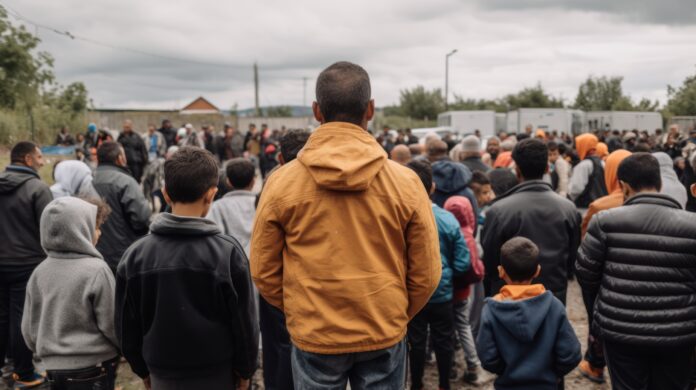
Some Canadians who escaped the Gaza Strip claim to have had to leave loved ones behind, with criticism directed towards Canada’s definition of “immediate family.”
Canadian citizen Amro Abumiddain, for example, was forced to leave his father in Gaza.
“If it weren’t for my kids I wouldn’t have left my dad, even if I had to die,” he said from his hotel room in Cario, as per The Canadian Press report by Laura Osman.
The Gaza Strip became the target of an Israeli bombing campaign following Hamas’ October 7 attack on Israel that killed 1,200 people.
Since then, more than 11,000 Palestinians are alleged by Hamas to have been killed in Gaza, most of them being women and children. A further 2,700 people have been reported missing.
Read More Canada Immigration News
Gazan Immigration to Canada Will Be Determined On A Case-by-Case Basis
Marc Miller Says Canada’s Immigration System Dealing With Changing Realities
Private Refugee Sponsor Groups Can Now Used Canada’s Permanent Residence Portal
Abumiddain had been staying with his father on the family farm since the inception of the Israeli offensive.
Although Canada was working towards evacuating him and his children, the United States succeeded in getting them out more quickly owing to his twin sons’ American citizenship. He had to leave his 78-year-old father behind, however.
Canada’s evacuation efforts in Gaza have been in the works for weeks, focused on getting around 550 Canadian citizens, permanent residents, and family members out of the region through the tightly controlled Rafah border.
The exit of foreign nationals from Gaza has been negotiated between Egypt and Israel, with Qatar acting as a mediating body.
356 people with links to Canada have successfully made it through the border as of now, Global Affairs Canada said on Monday.
However, Ottawa is being criticized for its definition of “immediate family,” which – unlike the US –does not include parents under its legal bracket; rather, it extends only to spouses, common-law partners, dependent children, and grandchildren.
Parents, in-laws, and siblings are not being offered a spot on Canada’s list of potential evacuees.
Osman reported that Abumiddain’s father is also unwilling to leave his brother, having worked with him on the family farm for a long time.
Watch video:
Abumiddain is requesting Canada to widen the legal definition of immediate family, to allow the family to stay together. The Canadian Council for Refugees has also been advocating for a broader definition to allow individuals to escape and find refuge with their loved ones in Canada.
Co-executive director Gauri Sreenivasan said that the government needs to recognize how modern families are composed and support systems are organized within them, so that narrow definitions are avoided.
“I think this is a time for us to be generous and identify what are the opportunities to get people who are trying to leave to safety, including their families.”
Precedent supports this request. For example, Canada’s evacuation efforts in Afghanistan were underscored by the government expanding the definition of “immediate family” to include “de facto dependents,” which included people who depend on a specific family for emotional or financial purposes and people who live with the family as household members.

